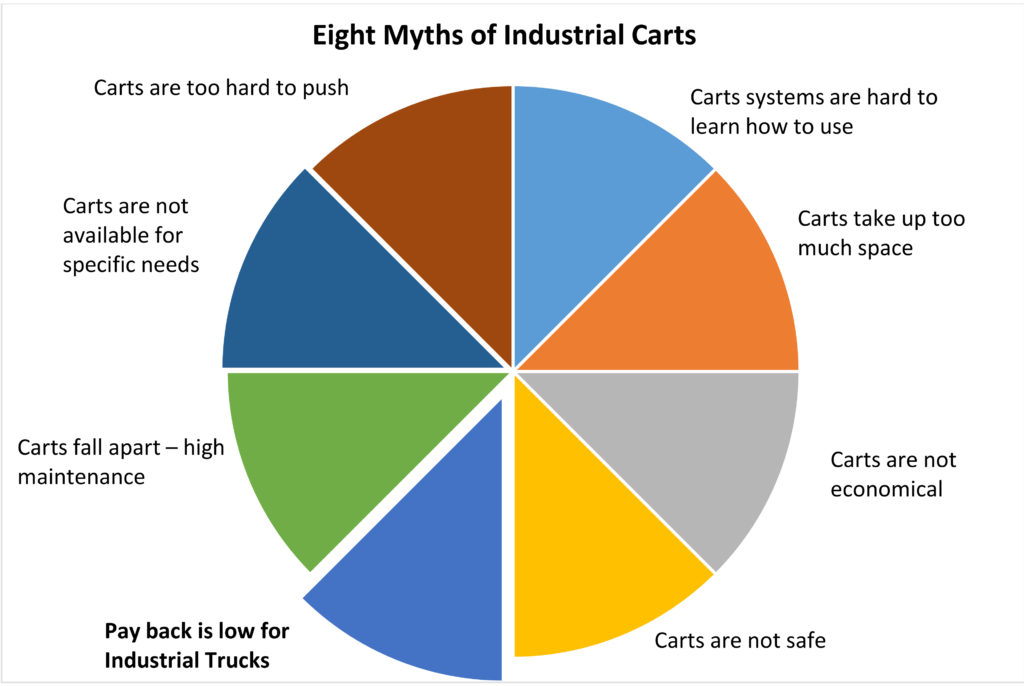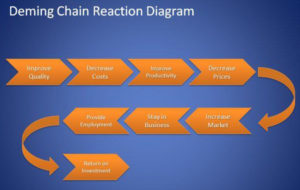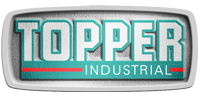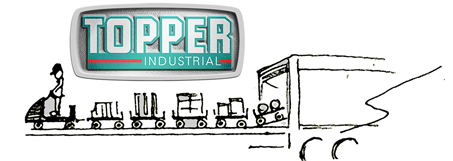
A myth is a widely held but false belief or idea.

In fact, the return on investment, (ROI) for industrial carts is rapid and quite high and since these carts are safer with quality components requiring little or no maintenance and repairs, the calculation is derived quite easily. Additionally, since the industrial carts are more reliable for delivery than fork trucks, the rationale for fork truck free manufacturing plants grows stronger as lean manufacturing principles are adopted.
Practicing lean manufacturing is a benchmark few industrial cart manufacturers deploy internally. At Topper Industrial there is a practice of lean as a way to establish a production system that creates more customer value using less resources.
By understanding what customers value and focusing its processes to deliver it, and through the continuous optimization of product and service flow across departments, the company is quickly earning the sobriquet of North American Fork Truck Free Leader.
By eliminating waste in the entire value chain to accelerate response while lowering cost; the Deming Chain Reaction is accomplished.

Producing high quality products and services is key for any organization that wishes to stay in business. An important goal for any organization is to produce trouble-free products. By doing so, loyalty is created, reduces costs, and allows further customer satisfaction through other offerings.
Deming’s 14 Points on Quality Management, a core concept on implementing total quality management, is a set of management practices to help companies increase their quality and productivity.
Deming’s 14 Points are as follows:
- Create constancy of purpose for improving products and services.
- Adopt the new philosophy.
- Cease dependence on inspection to achieve quality.
- End the practice of awarding business on price alone; instead, minimize total cost by working with a single supplier.
- Improve constantly and forever every process for planning, production and service.
- Institute training on the job.
- Adopt and institute leadership.
- Drive out fear.
- Break down barriers between staff areas.
- Eliminate slogans, exhortations and targets for the workforce.
- Eliminate numerical quotas for the workforce and numerical goals for management.
- Remove barriers that rob people of pride of workmanship, and eliminate the annual rating or merit system.
- Institute a vigorous program of education and self-improvement for everyone.
- Put everybody in the company to work accomplishing the transformation.
These total quality management concepts can be put into place by any organization to more effectively implement total quality management. As a total quality management philosophy, W. Edwards Deming’s work is foundational to TQM and its successor, quality management systems.
Theory of Profound Knowledge
In order to promote cooperation, Deming espouses his Theory of Profound Knowledge. Profound knowledge involves expanded views and an understanding of the seemingly individual yet truly interdependent elements that compose the larger system, the company. Deming believed that every worker has nearly unlimited potential if placed in an environment that adequately supports, educates, and nurtures senses of pride and responsibility; he stated that the majority–85 percent–of a worker’s effectiveness is determined by his environment and only minimally by his own skill.
A manager seeking to establish such an environment must:
- employ an understanding of psychology–of groups and individuals.
- eliminate tools such as production quotas and sloganeering which only alienate workers from their supervisors and breed divisive competition between the workers themselves.
- form the company into a large team divided into sub-teams all working on different aspects of the same goal; barriers between departments often give rise conflicting objectives and create unnecessary competition.
- spread profit to workers as teams, not individuals.
- eliminate fear, envy, anger, and revenge from the workplace.
- employ sensible methods such as rigorous on-the-job training programs.
- In the resulting company, workers better understand their jobs–the specific tasks and techniques as well as their higher value; stimulated and empowered, they perform better. The expense pays for itself.
The ideas of W. Edwards Deming may seem common or obvious now having become embedded in the culture of work. Deming’s theories have proven that poor payback is a myth when quality products are at the heart of the offering.

Article submitted by Jillian Burrow, Marketing Manager for Topper Industrial


